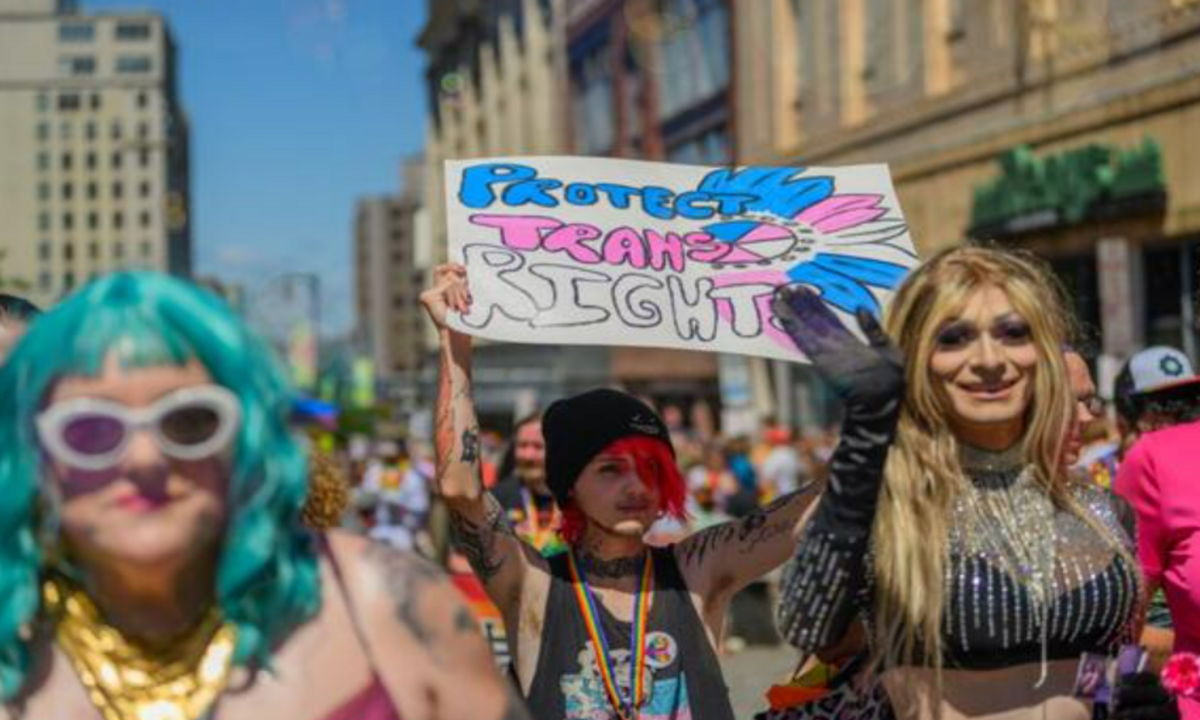In the early days of President Donald Trump’s second term, a wave of executive orders aimed at rolling back protections for LGBTQ+ individuals began to unfold. One of the most controversial moves was the declaration that the federal government would no longer recognize trans and nonbinary individuals in a way that reflects their identity. This raised serious concerns, especially for people living in Maine, where there are strong state-level protections for the LGBTQ+ community.
But what do these changes really mean for LGBTQ+ Mainers? While some fear the worst, legal experts and local organizations are actively working to understand the impacts and defend the rights of LGBTQ+ individuals across the state.
Executive Orders and Their Reach
President Trump’s executive orders are not as powerful as laws passed by Congress, and they cannot simply override state laws or existing federal statutes. “An executive order can’t erase state law, and it can’t change how courts interpret the law,” explained Hannah Hussey, an attorney with GLBTQ Legal Advocates & Defenders (GLAD Law). This is important to remember because Maine has some of the strongest protections for LGBTQ+ individuals in the country.
While the orders issued by President Trump have stirred fear and uncertainty, they are not expected to drastically alter the legal landscape in Maine. For instance, Maine continues to offer a third-gender option on state forms, a choice not available in many other states. Trump’s executive orders targeting gender identity and sexuality do not change Maine’s state-level protections, which extend to employment, housing, and healthcare, among other areas.
What Can Executive Orders Change?
Executive orders are legally binding instructions for federal agencies. While they cannot contradict the Constitution or laws passed by Congress, they can regulate areas where Congress has left gaps or where the president has authority. In the case of gender recognition and protections, this means that changes could affect things like passports and federal documents. Under Trump’s order, passports with a gender marker other than male or female, such as “X,” were frozen by the U.S. State Department.
While this will impact people renewing their passports or applying for new ones, it does not change Maine’s ability to offer the “X” gender marker on state documents. This distinction is crucial for those in Maine who have worked hard for recognition and safety in their identities.
What About Healthcare and Medicaid?
Another key concern for LGBTQ+ people, especially transgender individuals, is healthcare. Gender-affirming care, such as hormone therapy and surgeries, is crucial for many transgender individuals. Trump’s executive orders included measures aimed at limiting federal funding for gender-affirming care, which could affect Medicaid and other federal programs that provide support for such healthcare needs.
However, Maine has its own protections in place to ensure access to gender-affirming healthcare. Last year, Maine passed a “shield law” to protect healthcare providers who offer such care. This law means that even if federal funding for gender-affirming care becomes more restricted, Maine residents can still access the care they need.
As Maine works through potential Medicaid shortfalls, LGBTQ+ organizations like EqualityMaine are pushing for more state funding to cover these vital services.
Community Support and Advocacy
Despite the challenges posed by Trump’s executive actions, Maine’s LGBTQ+ community is not backing down. Local leaders like Gia Drew, executive director of EqualityMaine, are prepared to stand strong against any attempts to undermine the rights of LGBTQ+ people. “Whatever the president says doesn’t change who you are as a person or your identity,” Drew said. “We’re going to do everything possible to cushion any blow that comes our way.”
Organizations across Maine are rallying together, strengthening protections and resources for the LGBTQ+ community. GLAD Law, EqualityMaine, and others are committed to fighting for the continued protection of LGBTQ+ individuals and ensuring that they do not face discrimination or violence due to their gender identity or sexual orientation.
Understanding Gender-Affirming Care
Gender-affirming care is often discussed in the context of supporting transgender people. However, it’s essential to understand that this care is also used by cisgender people, particularly in cases such as hormone replacement therapy during menopause, or breast reconstruction following mastectomies for cancer patients. Aspen Ruhlin, community engagement manager at the Mabel Wadsworth Center in Bangor, emphasized the importance of recognizing that gender-affirming care encompasses a broad range of health services, not just those related to transgender individuals.
This broader view is crucial as we continue to understand the complexities of gender identity and its impact on healthcare.
What’s Next for LGBTQ+ Rights in Maine?
The uncertainty created by Trump’s executive orders is far from over. Legal challenges are expected, and the landscape of LGBTQ+ rights may shift depending on how these cases are handled by courts. But Maine’s commitment to protecting its LGBTQ+ residents remains strong, and local organizations are ready to defend those rights at every turn.
The road ahead may not be easy, but Maine’s LGBTQ+ community is more organized and prepared than ever. By continuing to support and advocate for one another, LGBTQ+ Mainers can ensure that their rights and identities are upheld, regardless of what happens on the federal level.
Disclaimer—Our team has checked this article to ensure its accuracy and eliminate any misinformation. We are committed to providing clear and reliable information for our readers.




